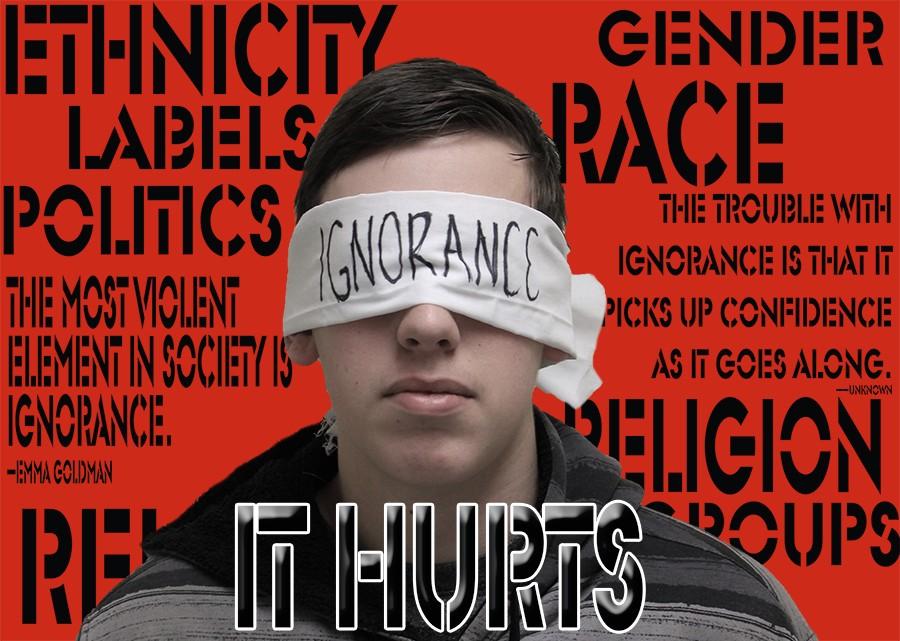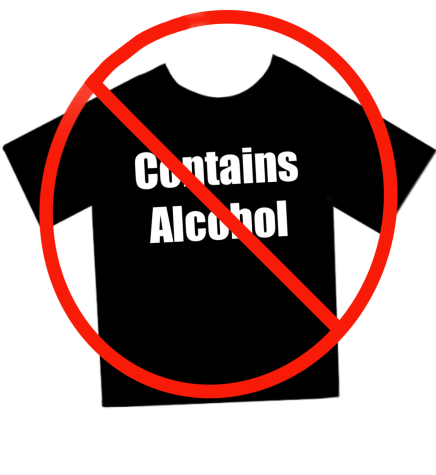Students share stories about facing prejudice and ignorance
March 8, 2015
Diversity is a main part of America’s history. The country was founded on people from different places coming together to make one big country. Unfortunately, many people refuse to accept all different types of people. Prejudices can be against many different things: race, religion, lifestyle, fashion and beliefs.
Race
People may think that prejudice against race in this country is gone, but that is far from the truth. Racial prejudice is prominent all across the country: through racist comments, discrimination in the workplace or just ignorance.
Students may be some of the worst offenders.
Kenedi Kelley, senior, Deja Cain and Tayler Loudermill, sophomores, have all been victims of discrimination in their lives because of the color of their skin.
Freshman year, Kelley moved from Chicago to Kansas. The school she went to in Chicago was a mainly African-American school. When she came to South, many people came off as ignorant when talking to her.
“Many stereotypes were put on me because of where I came from,” Kelley said. “They didn’t like the fact I didn’t talk or act like I was from Chicago.”
Kelley has gotten comments about how her personality either reflects her race or is wrong because that’s not what her race would do.
“I’m a loud person and so people assume it’s because of my race,” Kelley said. “They also assume I don’t like certain types of music or I don’t shop certain places.”
These stereotypes are proof of ignorance. People don’t think about what their comments mean to the people they are saying them to.
This other girl wouldn’t let me in the play area and said that black people weren’t allowed in there.” —Tayler Loudermill, sophomore
Loudermill had an incident happen when she was little that made her realize how much prejudice still exists in the country.
“When I was much younger, I was at a Burger King, and this other girl wouldn’t let me in the play area and said that black people weren’t allowed in there,” Loudermill said. She tries to just brush off such comments and tries not to fuel the fire when comments like that happen to her now.
Cain has also had people tell her she couldn’t be with them because of the color of her skin.
Kelley’s main tactic for dealing with racist comments is to tell the offenders to just not tell her their opinions if they know it will make her uncomfortable.
“Keep it to yourself! Out of respect for me, don’t say anything,” Kelley said.
Religion
Intolerance and the misunderstanding of different religions have been issues since the dawn of civilization. Liam McMullen, senior, is no stranger to others being ignorant of his beliefs.
McMullen is a Mormon. His religion — because it’s not as common as some religions − is often misunderstood by those who don’t know very much about it.
“Someone once said to me, ‘Ew, I don’t like Mormons. They’re basically a bunch of weird cultists,’” McMullen explained.
McMullen doesn’t let the ignorance of others bother him, though. “I usually just correct them and explain to them whatever it is they don’t understand,” McMullen said.
McMullen’s advice to others facing a form of prejudice is to simply ignore it and not let it bother them.
Scene/Emo/Goth
A popular trend among teens is a clothing style some refer to as “scene” or “emo.” It involves possibly wearing black clothing, band T-shirts, sneakers like Converse or Vans, and listening to alternative genres of music like metalcore and pop punk.
Nick Thornton, junior, has faced a lot of backlash from strangers for his choice of style similar to this.
“I’ve been called tons of names — ‘scene,’ ‘emo,’ even ‘druggy,’” Thornton said, noting the different labels he’s faced.
“I’ve heard people making fun of what I wear all the time. Sometimes they’ll give me dirty looks,” he said.
Thornton wants people to realize that just because a person dresses or looks differently than others, it doesn’t mean that person is going to be weird or mean.
“These kids know what it’s like to be judged, rejected, broken down and hurt, so they don’t want others to feel that way,” he said.
Thornton advises other teens to get to know people before judging them on things like clothing and taste in music.
Feminism
The issue of sexism and equality among genders has once again become a very controversial topic in the past year or two. Feminism, the belief that women are equal to men, has been put under a very negative light due to radical groups of women who are actually misandrists, or people who believe women are superior to men.
Kayana Aloi, freshman, is a self-proclaimed feminist. She herself has been judged by others for her social view and wants others to understand what feminism truly is.
“People believe feminists want women to be more powerful than men, but feminism is about equality. If we didn’t have feminism, [women] would still be unable to vote or hold jobs,” Aloi explained.
People often assume Aloi is an “annoying feminist,” or a misandrist. This is a common misconception feminists today face due to a small majority of women who genuinely do want to have power over men.
Aloi wants others to understand that true feminism is about equality and not at all about female supremacy.










